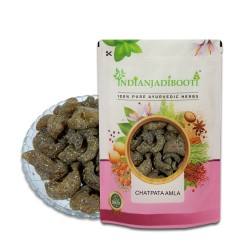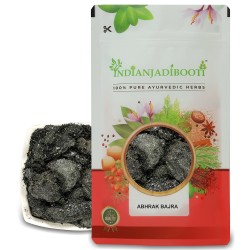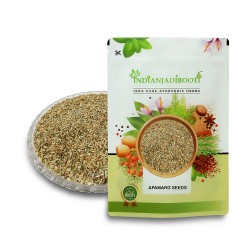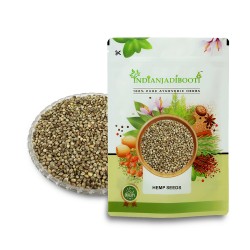
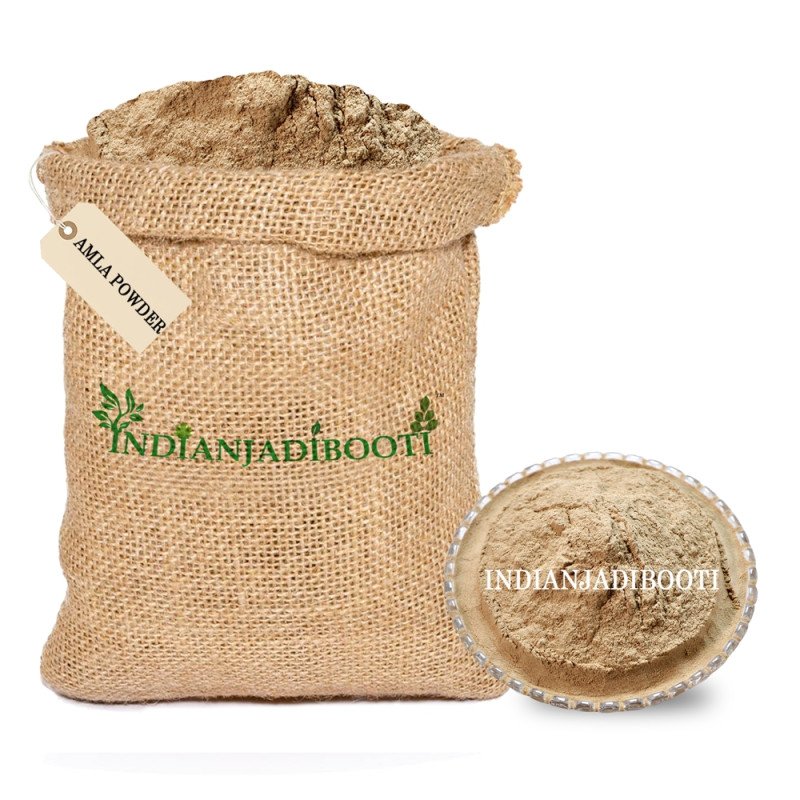
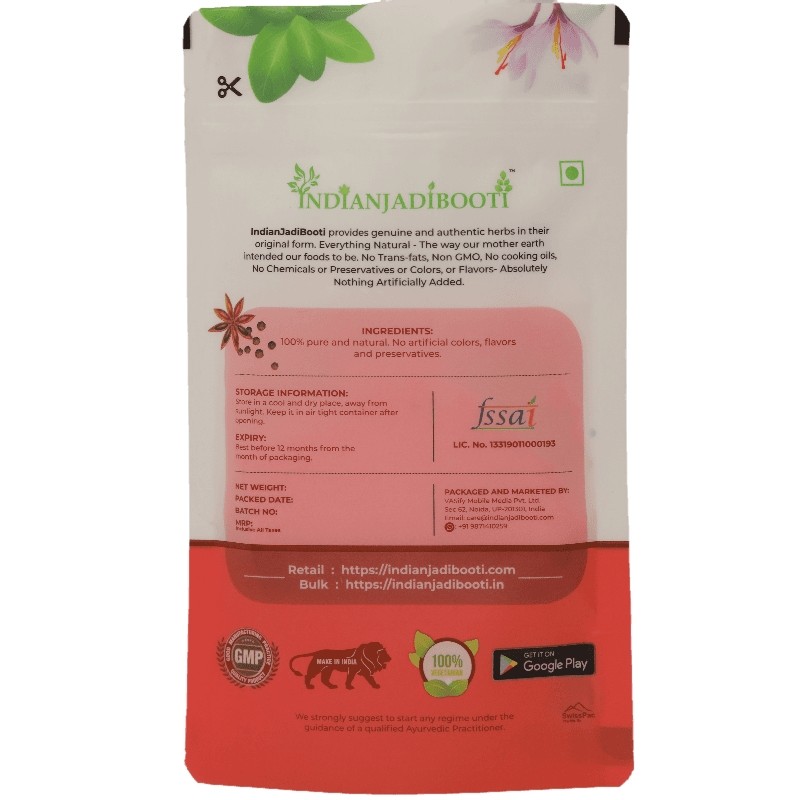









- Stock: In Stock
- SKU: HERB000048
- Shipping: Free within India upto 10KG
- Quality: Premium Herbs with No Adulteration
- Delivery: Within 3 to 7 Working Days in India
- Shipping: From Delhi based Facility
- Transport Charges for 25KG and above: Extra on To Pay
- COD Available: Max Limit: 2 Kg and Rs 3500 per order
- Discount on Prepaid Orders: Rs 50/- off. Auto Apply on Checkout.
Available Options
Description
Emblica officinalis, more commonly called amla or amli in South Asia, is a small to medium-sized deciduous tree that originates from tropical southeastern Asia. The flowers are green-yellow, while the round, greenish-yellow fruits have a smooth and hard texture. These fruits, which become ripe in autumn and are harvested manually, are a staple in the Indian diet. The tree's leaves are simple, resembling feathers, and are closely arranged along the branches.
Aids Weight Loss:
Amla’s high-fat burning properties have been shown in various studies. This plant accelerates metabolism, improving protein synthesis and reducing fat deposits. It also favors fluid reduction because it promotes diuresis with the excretion of organic toxins through the urine.
Due to its effect on weight, it is useful for controlling obesity, especially in people with diseases such as diabetes and cardiovascular problems.
Improve Digestive Processes:
This fruit is fibrous & its fiber content stimulates intestinal transit. The Indian population consumes a diet rich in fiber, however in countries like the United States and many regions of Europe this is not so, therefore people tend to suffer from transit slow intestinal, constipation, and other digestive discomforts.
The fiber content of Amla reduces these problems. Also, at the stomach level, it favors digestion because it increases the action of gastric juices for the decomposition of food. Thus, it is also useful to relieve stomach heaviness and gases.
Helps Fight Against the Common Cold:
Amla is the richest known natural source of Vitamin C, which is known to have excellent immunity-boosting and antioxidant properties. Consuming vitamin C regularly is associated with better performance of macrophages and other cells of the immune system.
Benefits of Amla Powder - Amalaki:
- Amla has been used in Indian households for centuries. It has been used to treat sore throats, coughs, colds and more!
- Amla powder has long been used as a medicine, fruit pickle, and even an ingredient in cooking. Amla has several medicinal properties that reduce the risk of dangerous ailments and serious conditions.
- Amla powder can help slow down the aging process of your skin and hair. It rebuilds cells from within, so your skin looks younger than ever before! You can use it on your face and body too—it's rich in Vitamin C which boosts immunity and keeps you healthy!
- To reap these benefits, take 1 amla fruit daily or 10-20 ml of amla juice. You can also use 4 grams of amla powder every day—anything more than this quantity could cause side effects to your body.
In the case of antioxidants, they allow the metabolism of free radicals that are formed from the reactions between oxygen and hydrogen from food and the environment. Free radicals are responsible for premature aging and cell damage; consuming Amla helps in its reduction.
A method for preparing emblica was documented in Sanskrit as early as the first century AD. Historical records also note the medicinal use of emblica in Arabic, Tibetan, and Egyptian cultures, as well as in the Sidha (Indian), Ayurvedic, and Unani systems of medicine. Every part of the plant, including the fruit, seeds, leaves, roots, bark, and flowers, can be used in both their dried and fresh forms. In India, the fruit is frequently consumed as a pickle.
Emblica is recognized as a potent antioxidant and has been integral to Ayurvedic medicine for ages. The amla fruit is often dried and then ground into a powder. This drying and pulverizing process triples its antioxidant levels, enhancing its effectiveness against common pathogens like bacteria and viruses compared to other dried fruits.
Amla, also known as Gooseberry, has been utilized for centuries in Ayurvedic medicine to address numerous health issues, such as heart disease and diabetes. These berries are rich in vitamin C and polyphenols, which possess antioxidant properties. Although most of emblica's attributed benefits come from its strong antioxidant action, it remains uncertain how much of this is due to the ascorbic acid content in the fruit or if other compounds play a significant role as well.
- In India, Amla powder is known by various names across different states and languages. Here are some regional names:
- Hindi: Amla Powder
- Tamil: Nellikai Podi
- Telugu: Amla Powder
Kannada: Amla Pudi - Malayalam: Amla Podi
- Marathi: Amla Powder
- Bengali: Amla Guro
- Gujarati: Amla Powder
Also Read- Benefits Of Amla Powder
Other Names: Amla Powder, Indian Gooseberry, Awala, Awla, Aamla, Amala, Amalki,Herbs and Spices Amala Powder, Anwala, Aamala, Sukha Awla, Sookha Awla, Aawala, Aowla, Aola, Aaola, Amalki, Aavla, Avla, Amlaki awala awla aamla amalki, Aanwla, awala ama, Aawla amla powder awala awla aam, Anwla, Anvla, Avala, Awala, Awla, Aamla, Aanwala, Aanvala, Phyllanthus Emblica, Nellikai, Amloki, Usirikaya, Avala, Nellikka, Awla, Dhatrik, Nellikai, Dhatriphal, Dhatriphala, Usiri, Ambala, Avalkathi
Reviews
100% Customers recommend this product
-
5 Awesome96.15%
-
4 Great3.85%
-
3 Average0%
-
2 Bad0%
-
1 Poor0%
Reviews Over Amla (Powder) - Desi Wild Amla Powder - Amalaki - Indian Gooseberry - Emblica Officinalis - Phyllanthus Emblica by IndianJadiBooti
- (4.96)
Total Reviews (26)
click here write review to add review for this product.
-
(0)
-
(0)
-
(0)
-
(0)
-
(0)
Report this review.
FAQ
A widely recognized and effective method for integrating amla into your daily regimen is to consume its juice on an empty stomach. This approach has gained significant popularity due to its potential benefits for overall health and wellness.
Although consuming amla during nighttime is feasible, it's generally recommended to refrain from doing so. The cooling nature of amla can potentially cause unwanted effects such as digestive discomfort or loose stools. Therefore, it's prudent to avoid eating amla at night to prevent these possible side effects.
Regular consumption of one to two amla fruits per day can effectively lower harmful cholesterol levels in the body. Amla stands out as one of the most effective natural remedies for managing cholesterol and is also a rich source of vitamin C. Additionally, it aids in the restoration and renewal of bodily tissues.
Amla is rich in antioxidants and vitamin C, which are known to enhance skin radiance and improve complexion. To reap the skin benefits of amla, it's recommended to either drink its juice regularly or use it as a facial mask.
The effectiveness of the product may differ based on individual hair characteristics and can change over time with regular application. Some users have reported an enhancement of their hair's natural color, resulting in a shinier appearance rather than a drastic coloring effect or noticeable tint.
Who should avoid consuming amla?
Individuals with low blood pressure should not use amla.
People with low blood sugar levels should steer clear of amla.
Those with heart conditions need to exercise caution when considering amla consumption.
Amla may cause increased stomach acid production.
It can potentially lead to constipation.
Consuming amla might result in fluid loss.
Some individuals may experience skin issues after using amla.
Amla consumption can sometimes contribute to hair loss.
Research has shown that extract from amla can help maintain healthy kidney function and shield against renal damage. Additionally, it may mitigate age-related kidney deterioration caused by oxidative stress. Studies have also demonstrated that amla juice can be advantageous for kidney health, likely due to its rich antioxidant content.
Strengthens Hair: Amla is rich in vitamin C, which supports the production of collagen. Collagen is essential for keeping hair strands strong and structured. Prevents Premature Greying: The antioxidants in amla combat oxidative stress, which can cause early greying.
Amla's blood-thinning effects, stemming from its antiplatelet characteristics, can interfere with normal blood clotting. Individuals with bleeding disorders should seek medical advice before incorporating amla into their dietary regimen.
Amla strengthens hair follicles, promoting quicker growth. Additionally, it cleanses the scalp by removing germs, dirt, and bacteria, keeping it cleaner and healthier. Therefore, it serves as a beneficial tonic for repairing scalp tissues and encouraging hair growth.
Indian Gooseberry, also known as Amla, is a potent natural remedy for managing blood pressure in Ayurvedic medicine. Its high Vitamin C content aids in lowering blood cholesterol and dilating blood vessels. Consuming Amla juice first thing in the morning on an empty stomach can help regulate hypertension and address other health issues as well.
Amla's ability to counteract free radicals can assist in preserving the natural hair color for extended periods. Additionally, research indicates that the nutrients found in Amla may stimulate melanin production within hair follicles, potentially restoring hair to its original color and reducing grayness.
Consuming Amla daily can have several benefits for your skin:
Enhanced Skin Health: Amla is abundant in vitamin C, a potent antioxidant that shields the skin from oxidative damage caused by free radicals. This protection support overall skin health and may help delay the signs of aging.
Amla offers various health benefits, including enhancing digestion and reducing stomach acidity. It proves beneficial for individuals with diabetes by aiding in blood sugar regulation. Furthermore, it contributes to slowing down the aging process and helps prevent premature graying of hair. There are several methods available for incorporating Amla into one's diet.



